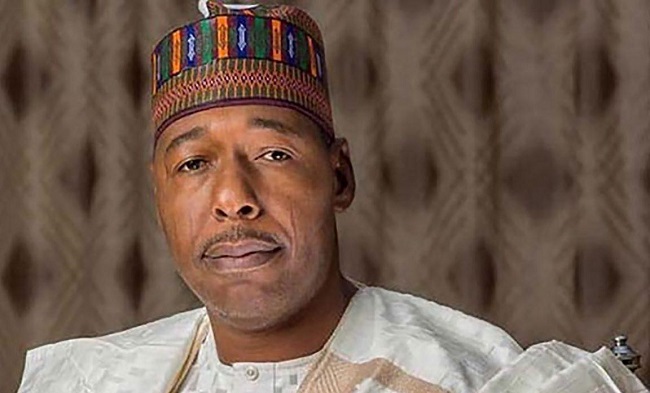Borno State Governor, Prof. Babagana Zulum, has called for urgent and coordinated efforts to address the escalating impact of climate change on agriculture across Africa.

Speaking on the sidelines of the 6th African Regional Conference on Irrigation and Drainage in Abuja on Monday, April 14, 2025, Zulum said that Africa was at a crossroads between vulnerability and resilience.
Zulum stressed the need for inclusive irrigation systems and resilient food production strategies.
“Across sub-Saharan Africa, nearly 65 per cent of farmland is rain-fed. But the rain no longer comes as it once did. Seasons are shrinking, droughts are intensifying, and floods are becoming more severe,” he said.
Referencing the World Bank’s 2023 Climate Smart Agriculture Report, he noted that rainfall patterns in the Sahel had shifted by 20–30 per cent over the past decade.
“The consequences are dire, the Food and Agriculture Organisation (FAO) projects a 50 per cent reduction in crop yields by 2030 if current climate trends continue.
“That is not just a statistic, it’s a direct threat to food security, public health, and the future of millions.
“In spite of contributing less than 4 per cent of global emissions, Africa continues to bear some of the worst effects of climate change.
“The Intergovernmental Panel on Climate Change (IPCC) reports a 30 per cent rise in extreme weather events in the region since the 1990s.
“One of the starkest examples is Lake Chad, which has lost more than 90 per cent of its volume since the 1960s. Irrigation is no longer optional, it is indispensable,” Zulum said.
He emphasised the need to shift from rain-dependent farming to climate-smart agriculture by investing in efficient, inclusive irrigation systems.
“Innovation must not be a privilege of the few. Our approach must empower smallholder farmers, especially women and youth who are the backbone of rural agriculture,” he stressed.
The governor said Borno had begun laying the foundation for agricultural renewal through sustainable irrigation.
Zulum urged that efforts should go beyond individual states or countries.
“Today is about a shared African journey, a unified strategy for irrigation and water governance that requires bold policy reform, investment, and community inclusion,” he said.
He called on development partners to align with Africa’s home-grown solutions.
“We seek not dependency, but strategic partnership. Let us build systems that withstand climate shocks and restore dignity to our people”.
Zulum urged delegates to leave with renewed resolve to scale solutions, fix gaps, and drive a continent-wide push for agricultural resilience and water security.
The conference continues in Abuja until April 17, with technical sessions, policy dialogues, and field visits to irrigation sites across Nigeria.
By Tosin Kolade
